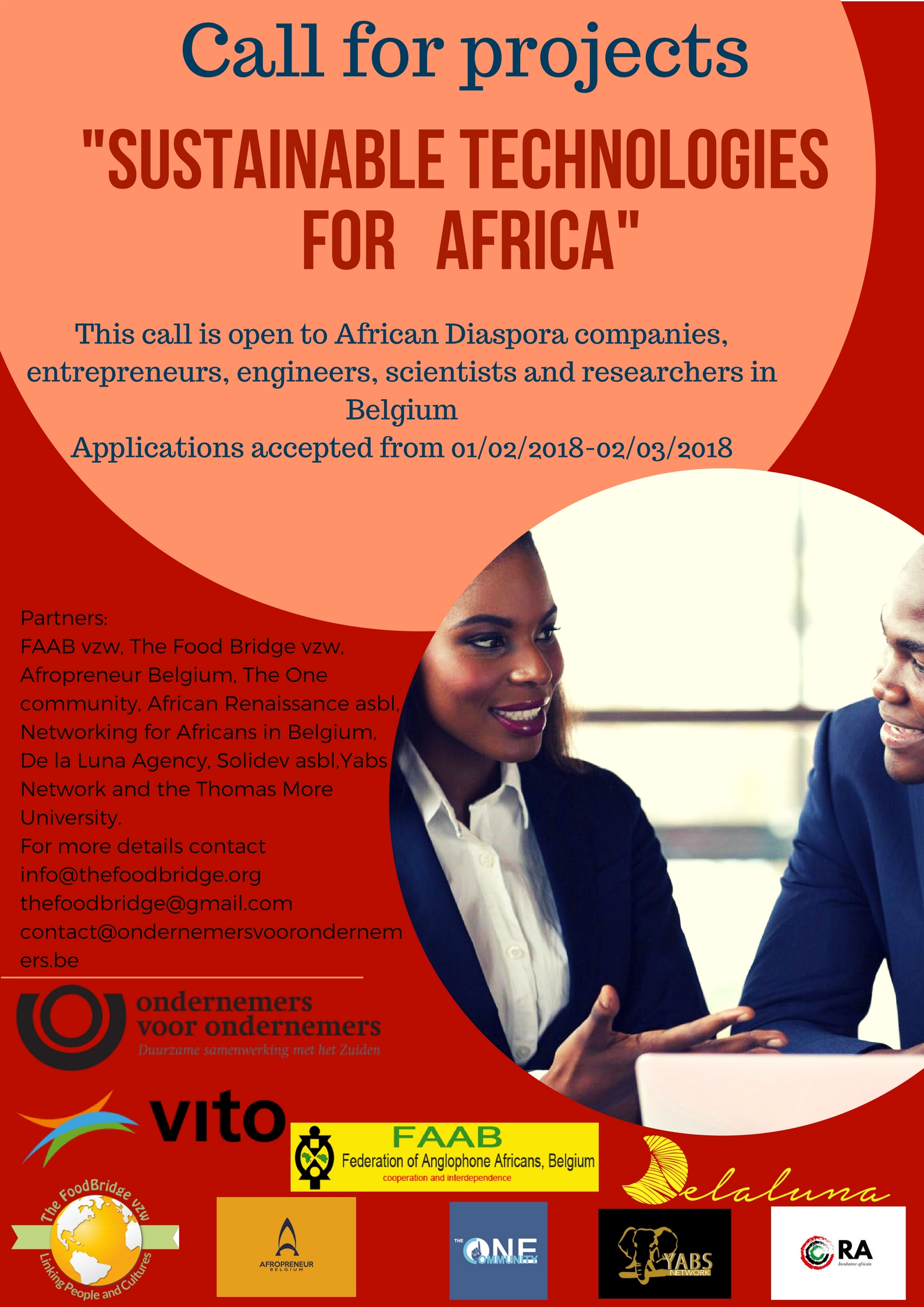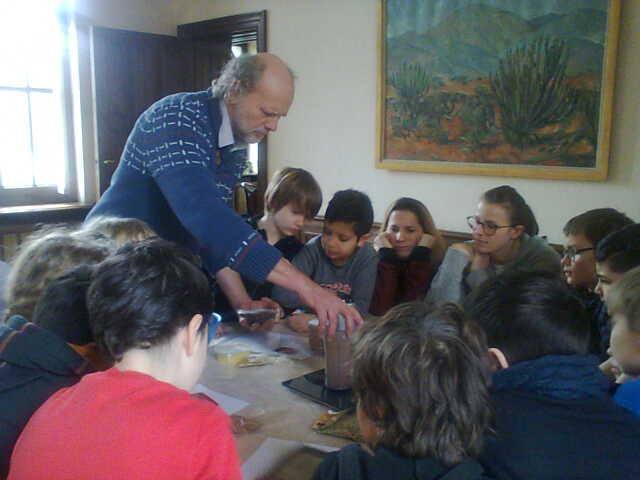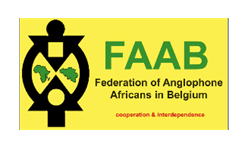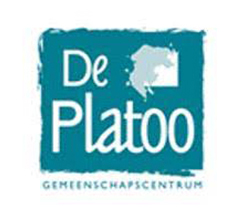 Entrepreneurs for Entrepreneurs vzw(Ondernemers voor ondernemers), The African Diaspora Projects Initiative and the Vlaamse Instelling voor Technologisch Onderzoek (VITO) is launching a new call for projects with the theme "Sustainable Technologies for Africa". Applications can be submitted from the 1st of February to the 2nd of March 2018.
Entrepreneurs for Entrepreneurs vzw(Ondernemers voor ondernemers), The African Diaspora Projects Initiative and the Vlaamse Instelling voor Technologisch Onderzoek (VITO) is launching a new call for projects with the theme "Sustainable Technologies for Africa". Applications can be submitted from the 1st of February to the 2nd of March 2018.
This initiative is with the support of our partners from the African Diaspora in Belgium including FAAB vzw, The Food Bridge vzw, Afropreneur Belgium, The One community, African Renaissance asbl, Networking for Africans in Belgium, De la Luna Agency, The One Community, Solidev asbl, Yabs Network and the Thomas More University.
Companies, aspiring entrepreneurs, engineers and scientists from the African diaspora with great ideas for a sustainable economy can participate in this “Sustainable Technologies for Africa” call for project. With the SusTech4Africa competition, VITO, the African Diaspora Projects Initiative and Entrepreneurs for Entrepreneurs will accelerate the founding and growth of cleantech industry in African Countries, by connecting local African and Belgian cleantech companies. This call for project is open to all sectors, however you need to state clearly how your project fits the theme “Sustainable Technologies for Africa”.

We have kickstarted 2018 with a joint activity with GC de Platoo and the Botanic Garden Meise. Children from the cultural centre De Platoo participated in our activity focusing on food origins and use. They visited the tropical glass house of the botanic garden where they saw and also learnt about the plants that produce some of the food products they know. Some of these plants include cocoa, coconut, sugarcane, banana, plantains, coffee. Later at the castle in the garden the children tasted food produced from these plants. They also used spices from different parts of the world wile learning how to make speculoos biscuits.
it was a day of fun and learning while the explored the world of taste. if your group will like to be part of this project do contact This email address is being protected from spambots. You need JavaScript enabled to view it.
Compendium
Upcoming Events
The Helping Hand Project
In collaboration with Kwabre Ne Sekyere Belgium,Mfantesman vzw,Voice of Women International, Kente FM and other African organizations, we are organizing "The Helping Hand project",is an action started in 2016, aimed at feeding the homeless in the Brussels area. We are in need of volunteers to help with the cooking, packing and distribution of food to the homeless and needy. We are also still looking for sponsors for this project. We do not accept funds but prefer sponsorship in the form of donations of desired food items, food packaging materials. if you are interested in giving a helping hand, contact us on This email address is being protected from spambots. You need JavaScript enabled to view it.







 For the first time, two visionary women have been jointly honored as the 2025 African Diaspora...
For the first time, two visionary women have been jointly honored as the 2025 African Diaspora...  The Collective Action on Forgotten Food is calling on women artists, designers, illustrators...
The Collective Action on Forgotten Food is calling on women artists, designers, illustrators...  The Food Bridge vzw, with the support of its partners, publishes an annual Compendium...
The Food Bridge vzw, with the support of its partners, publishes an annual Compendium...  Diaspora organizations in Belgium are vibrant and diverse—spread across...
Diaspora organizations in Belgium are vibrant and diverse—spread across...  30 years ago in Beijing, women from around the world demanded equality and also made history. The...
30 years ago in Beijing, women from around the world demanded equality and also made history. The...  Registration is still open for the upcoming FAO & ICMPD event on 𝗔𝗴𝗿𝗶𝗳𝗼𝗼𝗱...
Registration is still open for the upcoming FAO & ICMPD event on 𝗔𝗴𝗿𝗶𝗳𝗼𝗼𝗱... 






